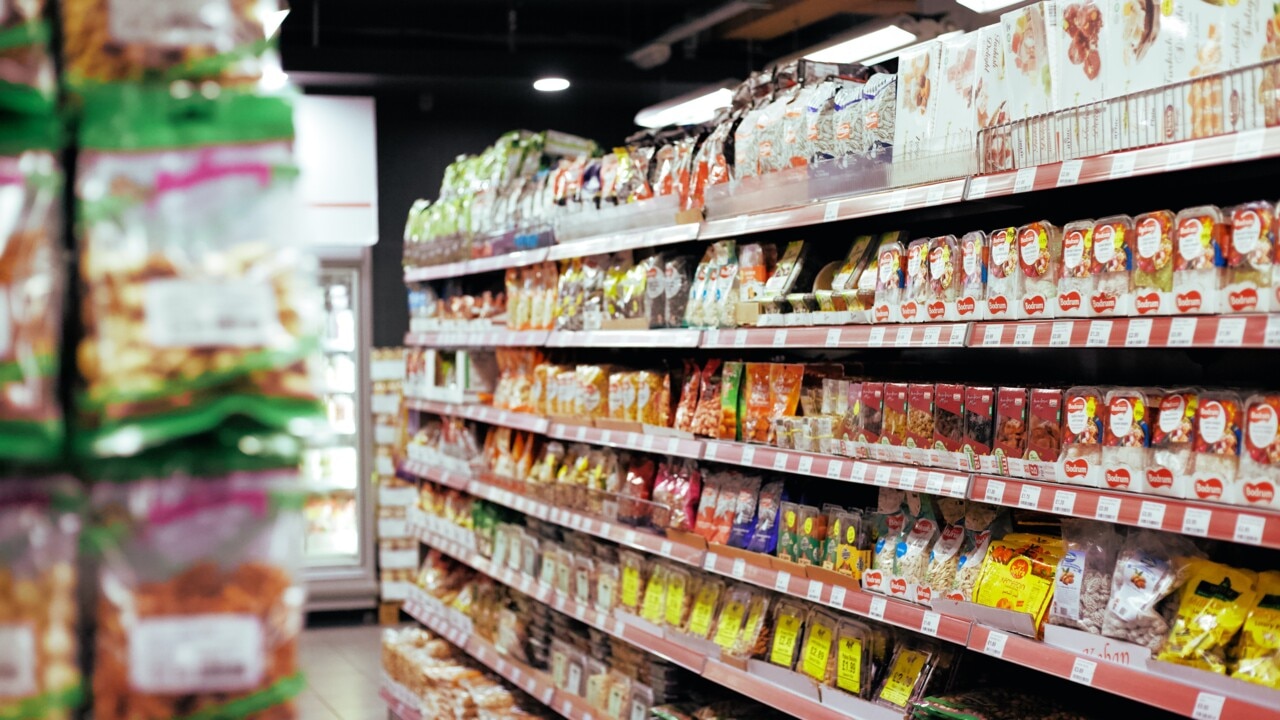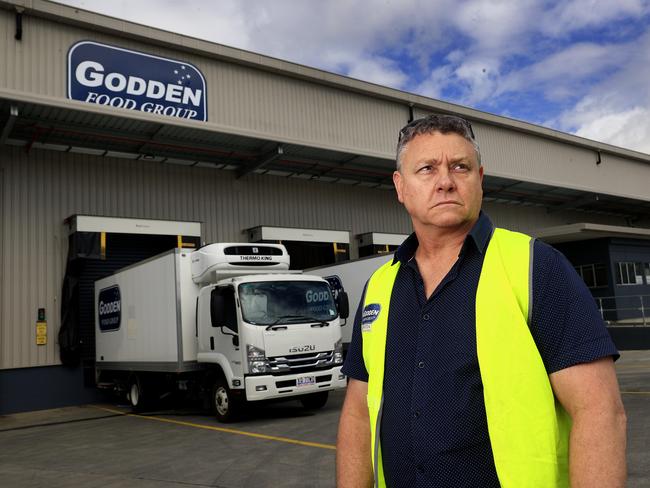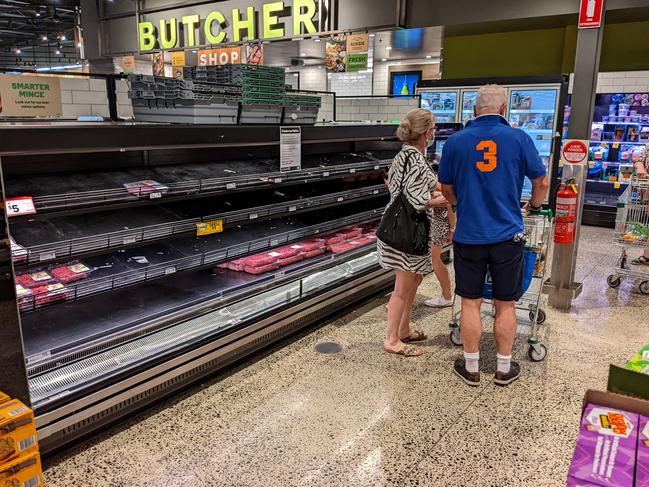‘Catastrophic’: Isolation requirements causing food shortages and business closures
Food shortages and business closures are looming amid an escalating supply chain crisis as Covid-19 isolation rules cause widespread staffing issues.

Retail
Don't miss out on the headlines from Retail. Followed categories will be added to My News.
Food shortages and business closures are looming amid a rapidly escalating supply chain crisis, as close contact isolation requirements and skyrocketing Covid-19 cases lead to “catastrophic” staff shortages across the economy.
Industry leaders are calling on state and federal governments to immediately scrap isolation rules that are wreaking havoc on businesses, and to provide subsidised rapid antigen tests so staff who are close contacts of a Covid case but have no symptoms can continue to work.
Under test and isolate protocols agreed by national cabinet, close contacts – even without symptoms – must stay home for seven days.
“Tens of thousands of businesses are going to be impacted if the close contact rule remains,” said Richard Forbes, chief executive of the Independent Food Distributors Association of Australia (IFDA), who said his members were describing the effects as “catastrophic”.
He said if a truck driver tests positive for Covid-19 and sits in a lunch area with 25 other staff, the whole warehouse has to shut down.
“You’re talking about a loss of $1 million a week for some of these warehouses,” he said.
“When national cabinet made the decision to let the virus run, there was no discussion about the close contact rule. If we double [cases] every day or every week, it’s a huge, huge problem. The impact on the food supply chain is going to be huge, unless we can keep those workers at work. It’s going to get worse and worse – it’s truly the tip of the iceberg. It will be much more damaging than government-enforced snap lockdowns.”
Jeff Godden, head of Gold Coast-based food distribution company Godden Food Group, said up to 45 per cent of his drivers had been forced into isolation after New Year’s celebrations.
“We’re part of the supply chain for the hospitality sector which includes venues such as cafes, clubs, pubs, hotels, restaurants, takeaways. We also supply to institutional sites like hospitals, aged care, defence,” Mr Godden said.

Collectively the IFDA’s members provide food to 60,000 hospitality venues and 20,000 institutional sites nationally.
“They’re all at risk at the moment if we can’t get people to do the deliveries,” he said. “It appears to be escalating very quickly.”
Mr Godden said his suppliers were now warning they were unable to get product due to lack of truck drivers, and his customers were “closing in droves” for up to five days at a time as frontline staff were forced into isolation.
“They can’t sustain that kind of loss,” he said. “December-January are peak periods for this sector.”
Mr Godden said it was frustrating that national cabinet did not appear to have thought through the flow-on effects of isolation requirements as the nation moved to its stated goal of “living with Covid”, when cases were expected to rise.
“The policy from the Government was basically, meet vaccination targets, open the borders and live with Covid – that just hasn’t happened,” he said. “Now they’ve changed the rules midstream. ‘Well, yes we’re living with Covid, but cases are out of control so everyone has to isolate.’ That was never the deal.”
He added: “If it was going to come to this, we would have been better off keeping the borders closed.”
Mr Godden said three weeks ago there were no Covid-19 cases in Queensland, and now there were thousands.
“We’re starting to see massive shutdowns of operations,” he said.
“It is frightening that the Government doesn’t have a strategy to deal with this,” he said.
“They must have known we were going to have cases and it was going to be exponential. To have no strategy three weeks into it, I think is a disaster for the Government.”
It comes as the nation’s biggest supermarket on Friday warned customers to expect product shortages.

“When you’re shopping with us at the moment, you might unfortunately have noticed gaps on shelf, or substitutions in your online order,” Woolworths chief executive Brad Banducci said in an email to shoppers.
“Unlike the surge buying of early 2020 (who could forget the toilet paper), this is because of the number of people in our supply chain in isolation – from suppliers to truck drivers and distribution centre team members – which in turn is causing material delays to store deliveries.”
Mr Banducci said the retailer was experiencing Covid-related absences of more than 20 per cent in its distribution centres and more than 10 per cent in-store.
“NSW is currently the most affected, although we are seeing impacts across the whole country, and it’s not yet clear how soon the system will come back into balance as we move through the Omicron wave,” he wrote.
“We understand how frustrating it is when you can’t find the product you’re looking for and, together with our suppliers and supply chain partners, we’re working hard to get all products back on shelf as quickly as we can (including rapid antigen tests)”.
Coles on Thursday announced purchasing limits for certain items including chicken breasts, sausages and mince.
The supermarket’s chief operating officer Matthew Swindells warned shoppers were in for a “couple of difficult weeks” in the lead-up to Australia Day.
“We were facing a number of supply chain challenges already – a shortage of pallets and a shortage of truck drivers,” Mr Swindells told Nine’s Today show. “[After the Christmas rush] we’re somewhat on the back foot trying to make sure that we can keep the food supply lines going. We’ve got probably another couple difficult weeks.”
Australian Industry Group chief executive Innes Willox told The Australian on Friday businesses were caught in a “web of skills and staff shortages, supply chain disruption and Omicron uncertainty” as workers were forced to isolate.
“This will be exacerbated in the coming weeks as businesses reopen or seek to ramp up,” he said.
“The uncertainty around staff availability is clearly impacting the production and delivery of key services across retail, hospitality and food processing. Industry needs clearer and workable rules around testing, isolation and furloughing to ensure they can safely operate and service their customers.”
Mr Willox added industry had warned governments “for months” about the need to recognise and promote rapid antigen testing.
“There has been disappointing reluctance from several states,” he said. “We are now paying the price for that stubbornness.”
The IFDA’s Mr Forbes called on national cabinet to urgently look for “another solution”.
“They’ve made the decision to open borders, they wanted to give business stability, the opposite is now happening,” he said.
“They now need to come up with a solution, or there will be mass closures.”
Originally published as ‘Catastrophic’: Isolation requirements causing food shortages and business closures





